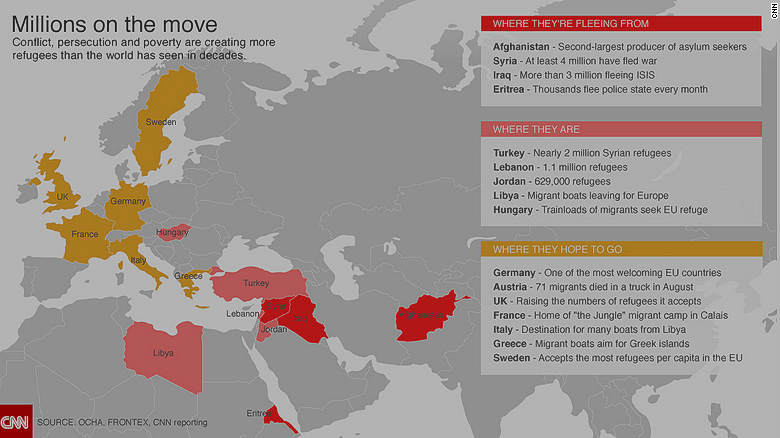
A cold reception: Gulf states shun Syrians
Video: http://www.cnn.com/2015/09/09/world/welcome-syrian-refugees-countries/Syrian refugees: Which countries welcome them, which don't
Story highlights
- Turkey is home to almost half of the 4.1 million Syrian refugees
- Europe struggles with how many migrants to welcome; U.S. has taken in 1,500 this year
- Several Gulf countries have offered zero resettlements to Syrians
(CNN)The expanding Syrian refugee crisis highlights the differences among countries that welcome desperate migrants and those that don't.
Some 4.1 million Syrians are fleeing a homeland riven by more than four years of civil war. Some countries have taken in so many migrants it's caused a population spike, while others have done little or nothing at all.
Here's a country-by-country look at what is being done to address the worst refugee crisis since the Rwandan genocide more than 20 years ago, according to experts.
Which countries take in the Syrian refugees?
Turkey: 1.9 million
Remarkably, this country now shelters almost half of the Syrian refugees and clearly has more than it can handle.
It's the No. 1 destination for displaced families.
Geography explains much of it: Turkey and Syria share a border.
The masses are so vast that 14% of them are sheltered in camps, U.S. figures show.
A staggering share of them are children and teens: More than half are under age 17, according to U.N. figures.
Lebanon: 1.1 million
The influx is so profound in Lebanon that the 1.1 million Syrian refugees mark a 25% increase in the country's 4.4 million population.
Those figures make Lebanon the country with the highest per capita concentration of refugees, the United Nations says. It also shares a border with Syria.
"The influx of a million refugees would be massive in any country. For Lebanon, a small nation beset by internal difficulties, the impact is staggering," U.N. High Commissioner for Refugees Antonio Guterres said last year.
Jordan: 629,000
Jordan provides shelter to a large number of refugees from Syria, Iraq, Somalia and Sudan, but Syrians constitute the majority of Jordan's refugee population, the United Nations says.
Jordan has a history of taking in refugees. Nearly half of its 7 million population is of Palestinian origin.
The Syrian arrivals, however, strain resources and "could have a negative impact on Jordanian public opinion of refugees and make preserving the country's asylum space in the country challenging," the United Nations says.
About 20% of the Syrian arrivals live in camps.
Iraq: 249,000
Like Syria, Iraq has been torn by attacks launched by ISIS, the extremist Islamist group that has captured portions of both countries for what it calls its Islamic caliphate.
Not surprisingly, most of the Syrian refugees have settled in northern areas such as Irbil, Duhuk and Nineveh, which are among the closest to the Syrian border and have large Kurdish populations, the United Nations says.
The notion of Syrian refugees in Iraq may strike some as ironic, if not absurd, because Iraq has deteriorated under sectarian strife and ISIS assaults, producing a sizable population of Iraqi refugees.
"As Syria's civil war has dragged on, the direction of forced migration for many Iraqi refugees has reversed. Tens of thousands of Iraqis who sought refuge in Syria between 2003 and 2011 have returned home, joining about a million Iraqis who were already internally displaced," Refugees International said.
About 38% of the Syrian refugees live in camps in Iraq, the U.S. State Department says.
Egypt: 132,000
Egypt rounds out this look at how the Mideast hosts most of the Syrian refugees.
No refugees live in camps there.
In fact, Egyptian billionaire Naguib Sawiris, one of the region's wealthiest men, has offered to buy an island for refugees. He would like to buy an isle from Greece or Italy. His name for the proposed island home: Hope.
Which countries are getting Syrian asylum requests?
Germany: 98,700
As Germany faces the largest share of Syrian requests for asylum in Europe, Chancellor Angela Merkel called for quotas to be set for each country to take a share of displaced people, including from Syria.
Germany expects the overall asylum requests received to soar above the current U.N. count of 98,700 from Syrians alone.
There could be 800,000 applications for asylum in Germany this year, and the country could take 500,000 refugees each year for "several years," Vice Chancellor Sigmar Gabriel has said.
Sweden: 64,700
Sweden joins Germany in demonstrating a high standard of responsibility in the refugee crisis, and Swedish Prime Minister Stefan Lofven joined Merkel at a press conference this week in urging a Europe-wide solution for hosting refugees.
In the 1990s, Sweden accepted 84,000 refugees from the Balkans.
"We accept that every person has a right to seek asylum," Swedish Foreign Affairs Minister Margot Wallstrom said. "This also puts the European solidarity to a test. I think it's important that we signal being a community that rests on common values of democracy and defense of human rights."
France: 6,700
The number of asylum requests has been relatively low.
But they will surely increase now that French President François Hollande has said France is ready to take on more responsibility and host 24,000 refugees over the next two years.
The French leader said this number would be France's share under a proposal by the European Commission for EU nations to take in 120,000 refugees over the next two years.
"We will do so because it is the principle to which France is committed," Hollande said.
United Kingdom: 7,000
The United Kingdom will likely see an upswing in asylum requests now that it has said it will take up to 20,000 Syrian refugees over the next five years.
But Britain will focus on resettling vulnerable refugees from camps in countries bordering Syria, not those who have already entered Europe, Prime Minister David Cameron said Monday.
"This provides refugees with a more direct and safe route to the United Kingdom rather than risking the hazardous journey to Europe, which has tragically cost so many lives," he said.
The refugees will receive a five-year humanitarian protection visa, Cameron said. Britain has been the second largest provider of humanitarian aid to Syrian refugees within the Middle East region,according to U.N. figures.
Denmark: 11,300
Though it has received a relatively large number of Syrian asylum requests, Denmark has sought to discourage the arrival of more migrants.
The country paid for ads in Arabic in four Lebanese newspapers to get the word out about its new, tightened restrictions -- such as reducing social benefits -- to try to prevent refugees from getting into the Scandinavian nation.
"We cannot simply keep up with the present flow," Immigration and Integration Minister Inger Stojberg, a member of the right-wing Venstre Party, said on Facebook. "In light of the huge influx to Europe these days, there is good reason for us to tighten rules and get that effectively communicated."
Hungary: 18,800
Many Syrian refugees are reluctant to register an asylum application in Hungary.
Having traveled north through the Balkans, those arriving on the country's border with Serbia have had police greet them and been forced to wait, sometimes for days, in holding areas and transit camps, where conditions are said to be poor.
Many migrants would prefer to register as refugees in countries such as Germany, Sweden and Austria, continuing their journey through Hungary to Northern and Western Europe.
Hungary's right-wing government, which has been trying to stop the flood of migrants, has erected a barbed wire fence along its more than 160-kilometer (100-mile) border with Serbia to prevent them from crossing there.
Serbia, which has received 49,500 asylum requests from Syrian refugees, is not a member of the European Union.
Other European countries
Syrian refugees have made a wide range of requests for asylum in other parts of Europe, including -- between April 2011 and this July -- 5,500 in Spain, 14,100 in the Netherlands, 18,600 in Austria, 8,300 in Switzerland and 15,000 in Bulgaria, according to the United Nations.
Italy, where many migrants who've made the perilous Mediterranean crossing from North Africa first land, had received 2,143 asylum applications as of July, the United Nations said.
Greece, which lies on a popular transit route from Turkey, has seen more than 250,000 people arrive on its shores this year so far, according to the International Organization for Migration. It had received 3,545 asylum applications as of July, U.N. figures show.
What's North America doing?
United States: 1,500 resettlements
About 1,500 Syrian refugees have been admitted to the United States, the majority of them since January, but the country is looking to increase that number in 2016, a State Department official said.
"The United States is committed to maintaining a robust refugee admissions program, and is particularly aware of the needs of the Syrian refugee population," a State Department statement said. "In the last year, in light of the significant number of Syrian refugees displaced in the Middle East region, we have made substantial efforts to facilitate increased admissions from this population, and aim to admit meaningfully increased numbers of Syrian refugees in Fiscal Year 2016."
The United States has given the largest share of aid to the Syrian refugee crisis, more than $574 million, or 31% of total aid donated, the United Nations said.
Canada: 10,000 resettlements
More than 2,370 Syrian refugees have resettled in Canada since January 2014, and the government promised in January to accept 10,000 Syrian refugees over a three-year period, the Toronto Sun reported.
Since that pledge, 1,074 Syrian refugees arrived in Canada, the newspaper said.
What about other wealthy nations?
Australia: 12,000 resettlements
Prime Minister Tony Abbott said his country would take in an extra 12,000 migrants fleeing conflict in the Middle East.
The intake almost doubles the number of people currently allowed into Australia through its humanitarian program, which is capped at 13,750 each year.
Priority would go to persecuted minorities -- especially women, children and families -- who are in camps in Jordan, Lebanon and Turkey, Abbott said.
Canberra also plans to spend $44 million on food, blankets and emergency supplies to support 240,000 people in UNHCR camps as part of its $230 million aid program
Amnesty International said other high-income countries -- specifically Russia, Japan, Singapore and South Korea -- have offered zero resettlements to the Syrians.
How many refugees are Gulf countries taking in?
Saudi Arabia: 0
United Arab Emirates: 0
Kuwait: 0
Qatar: 0
Bahrain: 0
They are collectively known as the Persian Gulf states, and even though they share a language and the Arabian Peninsula with Syria, the Gulf nations are among the few nations that haven't participated in the 1951 U.N. treaty on refugees, the agreement that energizes the West's efforts to provide asylum to refugees from far-flung corners of the globe.
In short, the Gulf nations aren't legally obligated to provide refuge or asylum.
Nadim Houry, Human Rights Watch deputy director for the Middle East and North Africa, has called those wealthy Gulf countries' inaction in the Syrian crisis "shameful."
The Gulf nations have said each has given millions of dollars to help the refugees, amounting to more than $500 million over 2½ years, according to the United Nations.
The Gulf states also say that Syrians have entered their countries on visas and continue living there.
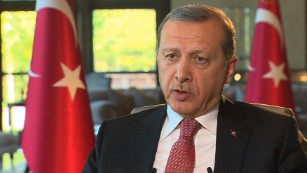

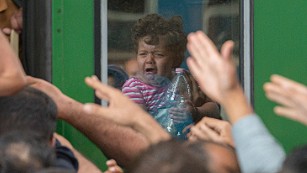
































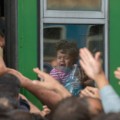
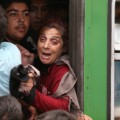


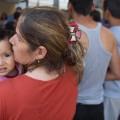


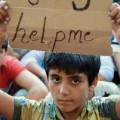

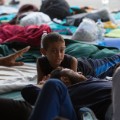


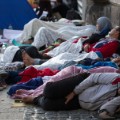

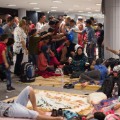
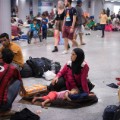
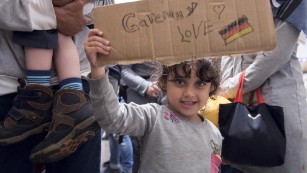

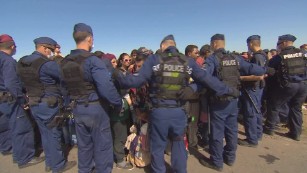
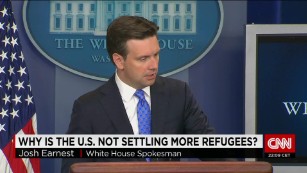
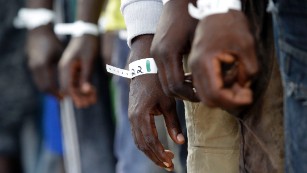







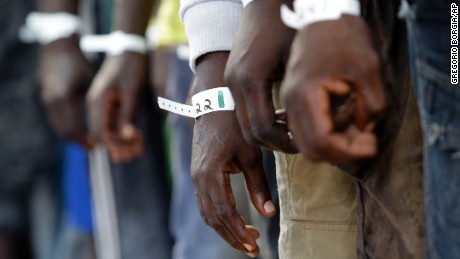


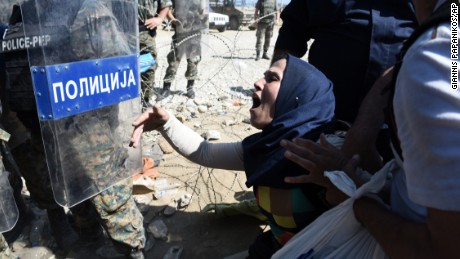







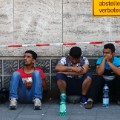



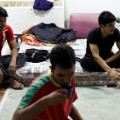



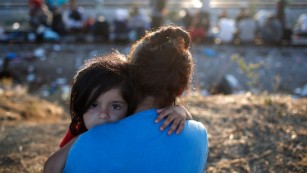
No comments:
Post a Comment